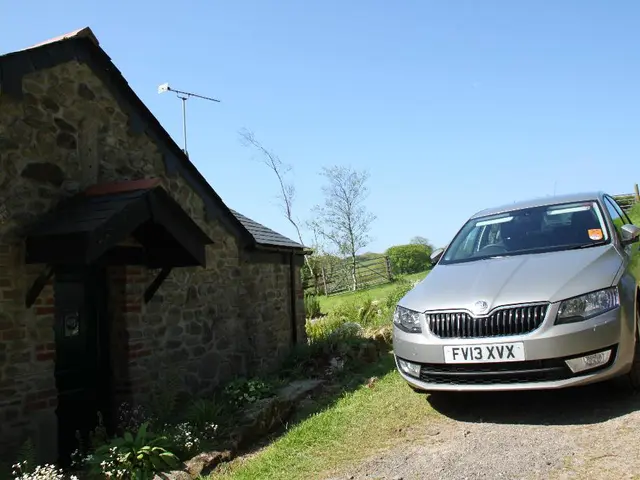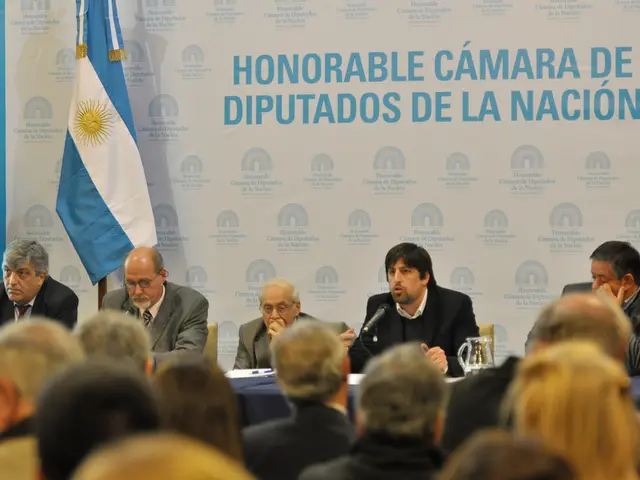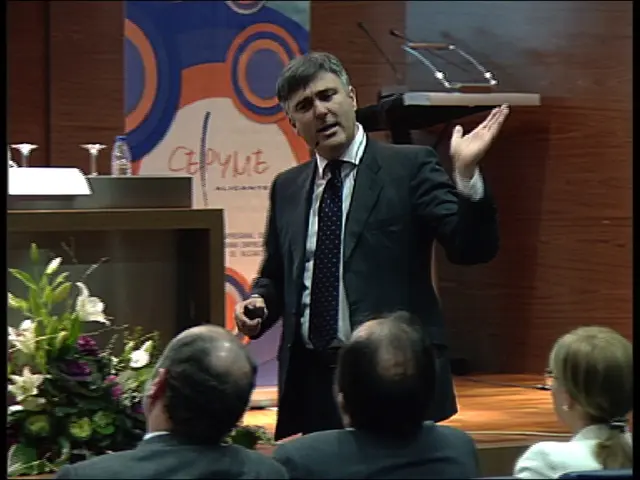Dropping a Cool 1.48M Euros on Energy Curtailment: Thuringia's Renewable Woopsies
Large-scale funding, totaling 1.48 million Euros, granted to the project 'Phantomstrom' in Thuringia - Thuringia receives fictitious power investment of 1.48 million EUR
Hey there! Let's chat about some coin droppin' and sunlight harnessin' happenin' in Thuringia, shall we? The operators of this region's renewable energy plants netted around 1.48 million euros in compensation payments last year, thanks to some grid-related shenanigans. Why, you ask? Well, the Federal Network Agency spilled some tea, and it's all about those grid operators causing curtailments during periods of excess electricity supply. They're just tryna save the day by keeping the grid from turnin' into a blown fuse zone.
Last year saw a total of 95 grid kick-ins (interventions) in Thuringia, spendin' 492 hours of our sweet renewable energy's time in the wind (and sun, and waves). Yep, you heard right—two-thirds less than the previous year, but we still had a total of 282 interventions this year.
Now, 60 of these interventions were brought on by bottlenecks in Thuringian Energynets' high-voltage grid, accordin' to a TEN spokesperson. A whopping 1,047 megawatt hours of renewable energy wasn't even able to make it to the grid. A further 35 interventions were ordered by 50Hertz. They run the transmission network across eastern Germany, including major cities like Berlin and Hamburg. These folks operate at the highest voltage level, up to 380,000 volts, so it's no wonder they're causin' some serious curtailments!
Thuringia: Transit Land for Green Energy
So why all this fuss over Thuringia? Well, guess what—it's mainly a transit station for renewable energy! A 50Hertz spokesperson packed a bit of info to the German Press Agency. They explained that the largest compensation payments usually go to the operators of onshore and offshore wind farms in northern Germany. That's right, Northern Germany—where the wind never seems to stop.
TEN reports the average share of renewable energy in their distribution network to be around 55 percent per year. And surprise, surprise—there are no local hotspots for curtailments in the TEN network. How a plant gets turned off depends solely on how much juice the grid can handle.
All this grid-related hooliganism cost around 2.77 billion euros across Germany last year, according to the Federal Network Agency. Yep, you guessed it—grid operators covered these expenses, just passin' em on to us in the form of electricity charges. And wind farms were the most frequent victims of these curtailments.
But what about our buddy Thuringia? Well, vegetatin' in the shade of Berlin and Hamburg, this little transit region takes one for the team, with renewable energy curtailments clockin' in at a significant amount!
(Insights: Solar plants and wind farms in high renewable-output regions, particularly Southern Germany (solar) and North Germany (wind), face curtailment due to grid congestion, strategically collecting incentives for curtailment, and Germany's policy framework encourages renewable integration but faces challenges in grid management. Future policies might focus on more flexible grid management systems to reduce curtailment needs.)
Now ya knows—the sun's gonna shine, the wind's gonna blow, but sometimes, grid congestion's gonna make 'em stop and wave goodbye to the power grid!
- The community policy in Thuringia should consider implementing vocational training programs for technical personnel in the renewable energy industry to improve grid management and reduce energy curtailment.
- Financial institutions can support the renewable energy sector in Thuringia by providing funds for vocational training and development of flexible grid management systems that minimize energy curtailment and ensure efficient energy distribution.








